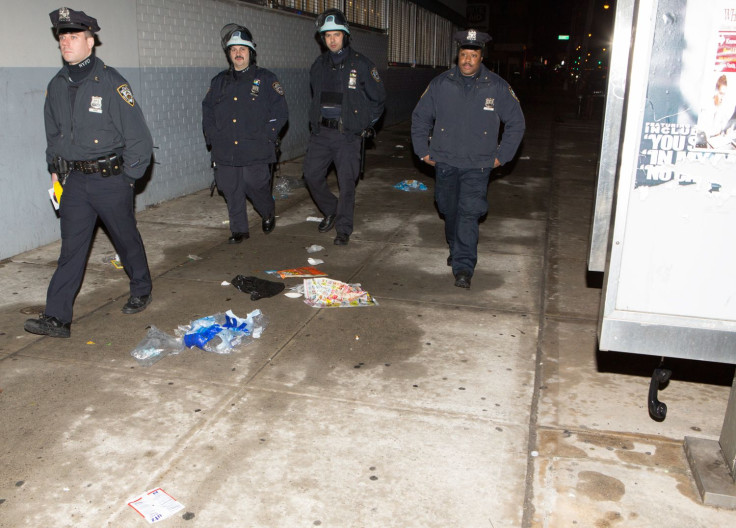As Brooklyn Simmers Following 'Riot,' NYPD Needs To Listen To Protesters

More than 100 people gathered on the streets of Brooklyn's East Flatbush neighborhood Monday evening to protest the NYPD over the death of yet another black teen at the trigger-happy hands of the department's officers.
The protest turned into a minor riot at one point, as a group about two dozen teens broke away from the peaceful demonstration and destroyed fruit and merchandise at a number of businesses near the street where 16-year-old Kimani "Kiki" Gray was killed by two undercover police officers, according to police.
At least one customer was injured, and some of the youths took to throwing bottles and stones at the NYPD's 67th Precinct, police said Monday night at the scene of the protest.
The violence and unruliness garnered the most attention and headlines on Tuesday, but the NYPD needs to read between the lines. Commissioner Ray Kelly -- who made an appearance at the scene of the protest a couple of hours after it ended -- needs to understand that delicacy and a human response are what are needed today, not a reactive law enforcement crackdown.
But while community organizers and politicians were putting together plans for a series of nighty peaceful vigils -- later postponed at the request of Kiki's family -- a police source said early Tuesday morning that police were planning to make a stand of sorts, coming out in full "hats and bats" riot gear, lining surrounding streets and creating a wide perimeter, in a mirror of the tactics employed Monday evening.
This is foolhardy, a waste of resources, and a sure way to exacerbate a situation that requires understanding and coming together, not brute force; two wrongs don't make a right. Kiki, who had a number of charges on his record, had actually once been charged with inciting a riot himself, long before he was shot 11 times by two undercover officers who say Gray pointed a revolver at them at about 11:30 p.m. Saturday.
But it is the NYPD which now must face the fact that the ongoing militarization of its force, combined with its criminalization of much of the populace, plays a major role as well. People in some heavily policed areas are frustrated and weary, and they just want a police force that treats them as more than just potential gun-holders or drug-dealers, people to stop and frisks and opportunities to get a collar.
"Why aren't we allowed to hang out and have fun anymore?" East Flatbush resident Kimberly Gordon asked Monday night at the scene of the protest, where she explained that she feels that police have become more antagonistic and violent over recent years. "It was a beautiful Saturday night, we were out, the weather was good. Why did they have to drive around looking for a kid to kill? Is this the way you should treat us?"
But the NYPD doesn't shoulder all the blame on some of the roughest streets in hotbeds from South Jamaica to East Flatbush, many of which are flooded with guns and run by violent gangs. As one protester noted early Tuesday, the police seemed scared during the protest and ensuing riot, unnerved by the spontaneous show of resistance, and fully aware that things could escalate quickly once the spark was lit and the first bottle was thrown.
Still, many residents feel that they have no other recourse than to take to the streets.
"We're frustrated; we can't take it anymore," an East Flatbush woman from Tobago with two teenage boys of her own said late Monday after the protest had wound down. "Every time I turn the TV on someone has died."
The tension and emotion will remain raw and visceral in East Flatbush for some time, as they did in Jamaica, Queens, after Sean Bell was gunned down by the NYPD; and in Soundview, the Bronx, when Amadou Diallo was shot 19 times by plainclothes police officers; and in numerous other instances of officers slaying civilians.
The NYPD has achieved its goal of getting violent crime way down, and now it's high time that the NYPD realize that it is often going too far. It's high time the NYPD realizes that this is an issue that requires dialogue and reform, not more arrests and batteries of cops in helmets and armor.
City Councilman Jumaane Williams, who represents East Flatbush and is a co-chair of the council's Gun Violence Task Force, said at the scene of the protest Monday night that the voices of the people who feel so frustrated with the police need to be heard.
"Dr. Martin Luther King said riots are the language of the unheard, and these people have been feeling unheard for a long time," he said. "I hope a lot of people are listening."
© Copyright IBTimes 2024. All rights reserved.











